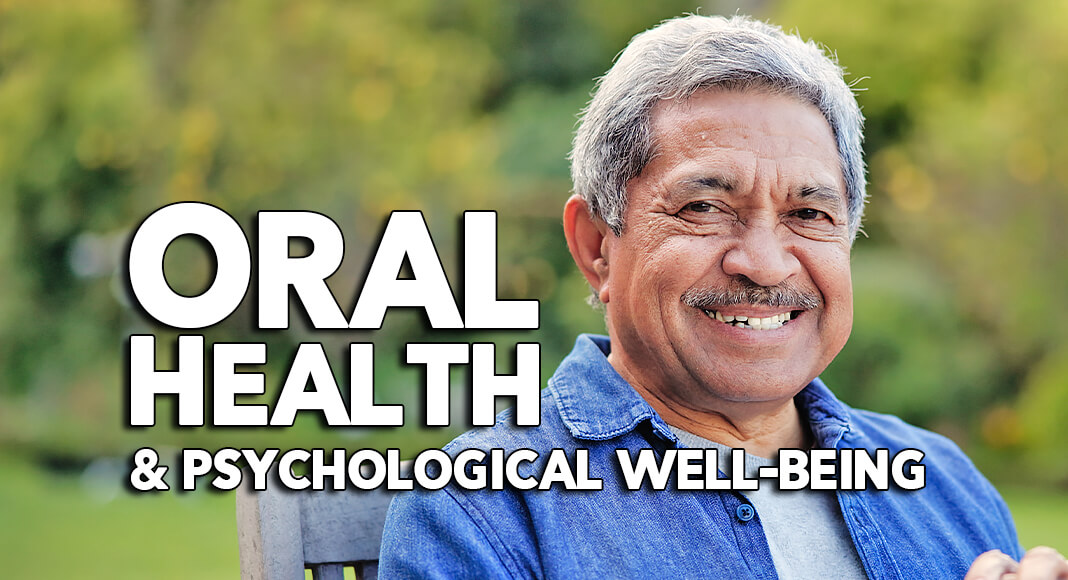
Mega Doctor News
Newswise — In humans, oral health influences general health and well-being in many ways. Other than reducing the need for oral rehabilitation later in life, maintaining good oral health reduces the risk of several systemic diseases. Therefore, investing time and effort into improving oral health can be highly beneficial for older adults. However, whether the health benefits of improved oral health extend to psychological domains remains unclear.
Positive psychological well-being is known to positively affect the survival rates of both healthy and unhealthy populations. Thus, to increase life expectancy, it is important to identify the factors associated with subjective well-being. This involves the evaluation of quality of life, that includes life satisfaction, interests, and happiness.
Now, a team of researchers led by Senior Assistant Professor Noriko Takeuchi from the Department of Preventive Dentistry, Okayama University Hospital, found that oral health influences subjective well-being in older adults through its effects on nutritional status and the individual’s environment. Additionally, Dr. Daisuke Ekuni from Department of Preventive Dentistry, Graduate School of Medicine, Dentistry and Pharmaceutical Sciences, Okayama University, Dr. Nanami Sawada from Department of Preventive Dentistry, Okayama University Hospital, and Dr. Manabu Morita from Department of Oral Health, Takarazuka University of Medical and Health Care were involved in the research and served as co-authors in this study, published in PLOS ONE on November 28, 2023.
To arrive at their findings, the team examined oral conditions such as bacterial load in the tongue coating, chewing ability, swallowing ability, and more, among older adults visiting a dental clinic in Okayama University Hospital, and examined how these measurements are related to participants’ self-reported psychological well-being. They also measured participants’ nutritional status and environmental characteristics including social connections, habits, and medical history.
“The scientific evidence for the relationship between oral health and psychological well-being is limited. To overcome the limitations of the previous studies and as a step toward health promotion, we evaluated the association between individual and environmental characteristics, oral condition, and nutritional status in relation to subjective well-being among older adults,” explains Dr. Takeuchi while describing the motivation of this study.
The findings of the study revealed that oral condition is related to nutritional status, which in turn, is related to subjective well-being among older adults. Oral condition plays a significant role in determining the types of food that a person can consume. Therefore, an individual’s oral condition may influence nutritional intake, thus influencing their health status. “Maintaining good oral health can help improve nutritional status, which in turn, can improve subjective psychological well-being,” says Dr. Takeuchi.
In addition, this study provides evidence for a bidirectional connection between oral health and a person’s individual and social environment. This connection can be explained by the fact that poor social relations are associated with psychological stress leading to habits such as smoking and sweet consumption, thereby increasing the risk of cavities, gum disease, and tooth loss. Moreover, it reports a connection between a person’s environmental characteristics and nutritional status. Overall, the findings suggest that oral health may not directly influence the subjective well-being, but indirectly, through nutritional status or environmental characteristics.
In a time when Japan’s population is aging rapidly, geriatric care is getting increased focus from healthcare providers in the country. The study provides crucial insights into how oral health exerts extended effects on mental health and suggests that healthcare investment in oral health can have increasing health benefits, especially in old age. “Our cross-sectional study has some limitations; however, the results highlight that a good oral health may improve the subjective psychological well-being in the long run,” concludes Dr. Takeuchi.









